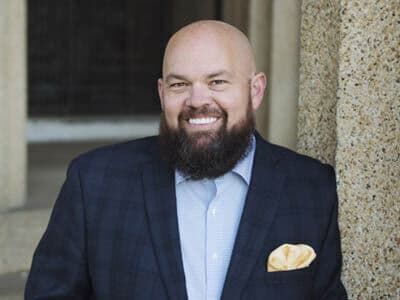Op-Ed: Bring back civility, decorum, character to colleges
Regional News

Audio By Carbonatix
2:30 PM on Thursday, October 23
Hundreds of thousands of college students returned to campus last month.
Yet the protests and violence that plagued our universities in the spring have not disappeared. Instead, the fall semester has also started down a dark path: Leading conservative voice Charlie Kirk was murdered in front of 3,000 people at Utah Valley University. In the wake of his assassination, universities have dismissed students for mocking Kirk’s death and released employees for inappropriate remarks on social media.
In this age of political violence and one-sided, parasocial relationships between online users and major online personalities, people are forgetting how to interact with each other in real life and respectfully disagree. It’s up to our institutions of higher education to rediscover their original purpose: to facilitate the free and open exchange of ideas, instill virtue and mold young people into engaged and mindful citizens who deeply feel a responsibility for the task of preserving our republic. Without this restoration, college campuses will continue to make headlines for the wrong reasons.
Early American universities, born from the Enlightenment, emphasized philosophy, ethics, rhetoric and moral reasoning. The purpose of education was to foster critical thinking and become virtuous. It wasn’t just about technical skills for a job; it was a process of character formation aimed at societal improvement.
George Washington, for instance, envisioned a national university to mentor the next generation of leaders who could preserve American freedom. While that vision never materialized, Thomas Jefferson and James Madison founded state universities like the University of Virginia with the same goal: to prepare statesmen, legislators and judges who would sustain the republic.
But as traditional disciplines lost credibility, and the high cost of tuition demanded clear returns on investment, universities strayed from that mission.
And while career preparation no doubt remains important, it can’t be the only goal that defines them. Universities, like churches and other crucial pillars of society, must be multipurpose institutions. They can strengthen the social fabric and cultivate knowledge of higher ideals even as they advance individual career opportunities.
Striking this balance will be especially important as tools, new and old, allow anyone to cheaply learn the technical skills formerly reserved for the university educated. Consider AI’s rapid takeover, the ubiquity of Youtube and other websites with free education content, and the growing appeal of trade schools.
Universities must lean into their key differentiator as places for character development, critical thought and creative innovation, things that are not as easy to accomplish on a screen and outside of a community. Subjects like philosophy, classics, literature and civics, which encourage viewpoint diversity and moral judgment, can help instill these skills and should be required even for business and science majors.
Since a proper liberal arts education rooted in civics, history and Western civilization is no longer guaranteed at public or even private universities, one solution is reinstating a mandatory core curriculum, like the one at the University of Chicago. Their Core Curriculum puts all students through a sequence of foundational courses that compel them to reflect upon what it means to be human, live in community and belong in a democracy.
Another possibility for renewal lies in creating new departments within existing universities that are tailored to the work of character growth and the development of ethical behavior. Recently, many public institutions are creating new schools and institutes dedicated to civic education and political leadership, often founded by committed alumni or proactive governing boards, like the newly established School of Civic Leadership at the University of Texas at Austin. But this momentum must spread more widely. America needs more initiatives like these.
Most Americans agree that change is needed on our campuses. Seven in 10 believe universities have a duty to promote civil discourse, according to research by the Ronald Reagan Center on Civility and Democracy. At the same time, most Americans today rate higher education institutions as only “fair” to “very poor” in their performance at fostering respectful dialogue.
Now more than ever, colleges must reclaim their role as cornerstones of civility, reasoned debate and intellectual growth. A curriculum focused on civic virtue and constitutional self-government can combat the cynicism and nihilism that fuel division and, at times, even violence. If universities recommit to shaping both intellect and character, they can restore their legitimacy, strengthen civil society and help strengthen our democracy.
Frederick J. Ryan Jr. is the director of the Ronald Reagan Center on Civility and Democracy. The center holds programs at both its facility in Washington, D.C., and at the Ronald Reagan Presidential Library and Museum in Simi Valley, Calif.







